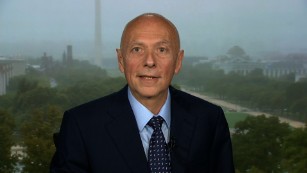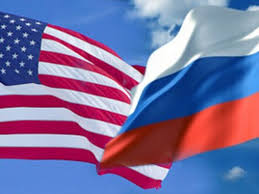US suspends talks with Russia over Syria
The US announced Monday it is "suspending its participation in bilateral channels with Russia" that had come about as part of the short-lived cessation of hostilities in Syria.
"This is not a decision that was taken lightly," State Department spokesman John Kirby said in a statement announcing the suspension.
"Everybody's patience with Russia has run out," White House Press Secretary Josh Earnest told reporters Monday while addressing the decision.
Earnest said Russia had lost credibility by "making a series of commitments without any indication they were committed to following them," accusing Russia and its Syrian regime allies of trying "to bomb civilian populations into submission."
Secretary of State John Kerry last week had threatened to call off bilateral talks with Russia unless Moscow took immediate steps to end the assault on Aleppo and restore a ceasefire.
Kerry: 'I lost the argument' on Syria
The statement added that the Russian and the Syrian regime's unwillingness to uphold the cease-fire accord was "demonstrated by their intensified attacks against civilian areas, targeting of critical infrastructure such as hospitals, and preventing humanitarian aid from reaching civilians in need."
US military and civilian personnel that were sent to Geneva, Switzerland, to work with the Russians on the Joint Implementation Center will now be withdrawn home, according to the statement and US defense officials.
The Joint Implementation Center was a key element of the negotiated accord and was intended to facilitate collaboration between the American and Russian militaries in targeting ISIS and al Qaeda's Syrian affiliate, the al Nusra front. The center was never launched because the agreement had required that the cease-fire hold and aid deliveries must be allowed for at least seven days prior to the center's starting work.
Officials said the US and Russia will continue to communicate via previously established direct military-to-military channels as part of a safety effort to "de-conflict" Syrian airspace and allow for coalition and Russian warplanes to avoid dangerous accidental incidents.
State Department spokesperson Elizabeth Trudeau told reporters Monday that US and Russian officials had met through the weekend to discuss Syria. The suspension "does not preclude multi-lateral dialogue" with Russia regarding Syria, Trudeau added.
When asked if the US had lived up to its end of the cease-fire deal, Trudeau said, "We believe we did."
For its part, Moscow announced Monday that it was suspending an arms reduction agreement with the US in which both countries agreed to dispose of 34 tons of plutonium, enough for thousands of nuclear bombs, over what it called Washington's "unfriendly actions" toward Russia, state news agency TASS reported.
In a statement published on the Russian Foreign Ministry's website, Foreign Minister Sergey Lavrov said: "The decision we have made is a signal to Washington: attempts at talking to Russia from the position of strength, in a language of sanctions and ultimatums while continuing selective cooperation with our country ... where this cooperation benefits the United States will not succeed."
Asked if the Russian announcement was linked to the recent US decision regarding the suspension of bilateral Syria talks, Trudeau said, "I would not link those at all."
"We believe it would be a shame if this important agreement was put aside because of an unrelated issue," she added.

Former Russian FM: Moscow not interested in Syria talks
Russia's Foreign Ministry spokeswoman Maria Zakharova expressed regret over Washington's decision Monday to stop participating in the bilateral channels with Russia.
Shortly after Zakharova's response, Konstantin Kosachev, head of Russia's Foreign Affairs Committee, criticized the decision by the US.
"Russia has striven for continuing dialogue with the US on Syria until the last moment, and only our position was keeping the chance to launch a stable peace process alive," he said, according to Russian state-owned Sputnik News.
He also accused Washington of making the decision because of campaign politics, saying it was based "to a great extent on subjective factors linked with the current presidential election cycle."
The UN's special envoy for Syria, Staffan de Mistura, said he "deeply regrets" the fact that the US-Russia talks "did not reach a positive conclusion," according to a statement issued in the wake of the announcement.
"The UN will continue to push energetically for a political solution of the Syrian conflict regardless of the very disappointing outcome of intense and long discussions among two crucial international stakeholders," the statement said.
News Courtesy: www.cnn.com












